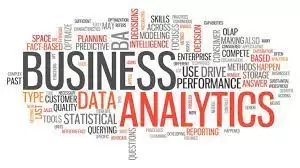1140Views

What to expect after a PGDM in Business Analytics
In the modern corporate world, data is everywhere. From online purchases and social media interactions to supply chain records and market trends — businesses are surrounded by numbers. But raw data on its own is just noise. To make sense of it, companies need experts who can extract insights and turn them into strategies.
That’s where a Post Graduate Diploma in Management (PGDM) in Business Analytics comes in. This program prepares students to navigate the flood of information that businesses collect daily, using analytical tools and business intelligence techniques to drive smarter, faster decisions.
Why Business Analytics Matters Today
The availability of data has grown at a staggering pace in the last decade. Every click, every transaction, every movement in a supply chain generates information. For organizations, this means there’s an incredible opportunity to understand customers better, optimize processes, and gain a competitive edge.
However, having the data is only half the story. The real challenge lies in knowing how to use it. Professionals with expertise in Business Analytics bridge this gap. They not only understand the numbers but can also translate them into clear, actionable steps for their organizations.
Career Pathways After PGDM in Business Analytics
Graduates with a PGDM in Business Analytics find themselves in demand across industries. From retail and banking to manufacturing and healthcare, businesses of all sizes are on the lookout for professionals who can transform complex datasets into practical solutions.
Some of the key roles you could step into include:
- Data Analyst
The role of a Data Analyst is often the first step into the analytics field. These professionals are responsible for collecting and organizing data, cleaning it to remove inconsistencies, and preparing it for deeper analysis. They design reports, build dashboards, and create visualizations that help business leaders see the bigger picture. - Business Intelligence (BI) Analyst
BI Analysts go beyond just organizing data — they connect it to business objectives. They work with decision-makers to design reporting systems, develop insights, and even use AI-based models to predict trends. In many organizations, BI Analysts are trusted advisers who help shape long-term strategy. - Data Scientist
Data Scientists work at the cutting edge of analytics. They build predictive models, design algorithms, and use advanced statistical techniques to answer big business questions. Their work often involves finding hidden patterns in large datasets, helping companies forecast market shifts, and identifying risks before they escalate.
Salary Prospects
Compensation in the field varies based on your role, experience, and location:
- Data Analysts in India typically earn around ₹5,00,000 per year.
- Business Intelligence Analysts often earn between Data Analyst and Data Scientist salaries.
- Data Scientists can expect an average of ₹9,00,000 annually, with experienced professionals earning significantly more.
Skills You’ll Acquire in a PGDM in Business Analytics
One of the most valuable aspects of this program is the balance between technical expertise and business understanding. By the time you graduate, you’ll have mastered:
- Data Collection & Preparation – Learning to identify, obtain, and clean relevant data so it’s ready for analysis.
- Data Analytics & Visualization – Applying methods like regression analysis, time series analysis, and descriptive statistics, and presenting results visually so they’re easy for stakeholders to understand.
- Predictive Modeling – Using machine learning algorithms and statistical models to forecast future events.
- Problem-Solving & Decision-Making – Defining problems, testing solutions, and making data-backed decisions that align with business goals.
Real-World Applications Across Industries
A PGDM in Business Analytics opens doors to careers in multiple sectors. Here’s how analytics skills apply in different domains:
Retail – From price optimization to understanding customer preferences, analytics helps retailers decide what to stock, how to price it, and even how to lay out a store for maximum sales.
Healthcare – Data analytics can help track patient health trends, improve hospital operations, and design preventive care strategies. For instance, predictive models can forecast potential outbreaks and guide the distribution of medical resources.
Banking & Finance – Detecting fraud, improving risk assessment, and creating personalized financial products all rely heavily on analytics. Banks use customer transaction data to refine services and offer targeted products.
Manufacturing – Analytics enables manufacturers to forecast demand, reduce waste, and fine-tune production processes. Real-time data can reveal inefficiencies and help streamline the supply chain.
Why Choose the PGDM Route?
While there are shorter courses and certifications available in analytics, a PGDM offers a deeper and broader learning experience. It not only teaches you the technical tools but also ensures you understand the business context in which they’re applied. This combination is what employers value most.
At Vivekanand Business School (VBS Mumbai), the PGDM in Business Analytics blends classroom learning with hands-on experience. Students work on live case studies, interact with industry experts, and use the same tools that professionals rely on in the field. The curriculum is designed to make graduates job-ready from day one.
A Future-Proof Career Choice
Data isn’t going away — in fact, the volume will only increase in the years to come. As businesses continue to embrace digital transformation, analytics professionals will be at the heart of decision-making. Whether you’re interested in marketing, finance, operations, or strategy, the ability to interpret and act on data will remain one of the most valuable skills you can have.
At Vivekanand Business School (VBS Mumbai), our PGDM in Business Analytics program is designed for the data-driven future. With top-tier faculty, industry partnerships, and hands-on capstone projects, students are prepared for high-demand roles in data science, analytics, and business intelligence. Whether your goal is to work in retail, finance, healthcare, or consulting, our curriculum empowers you with tools like Python, R, Tableau, and Power BI to thrive. VBS also focuses on holistic development through mentorship, internships, and live case studies—helping you become a future-ready business leader.
Conclusion
Business Analytics is more than a profession — it’s a mindset. It’s about looking at information not just as numbers but as stories waiting to be told. With a PGDM in Business Analytics, you’ll be equipped to uncover those stories, guide strategy, and help organizations navigate an increasingly complex business landscape.
If you’re ready to combine analytical thinking with real-world business impact, this is a path worth considering. And with institutions like Vivekanand Business School offering industry-relevant training, your journey into the world of analytics can start on the right note.
Prof. Nikita Ramrakhiani
Assistant Professor
Vivekanand Business School

